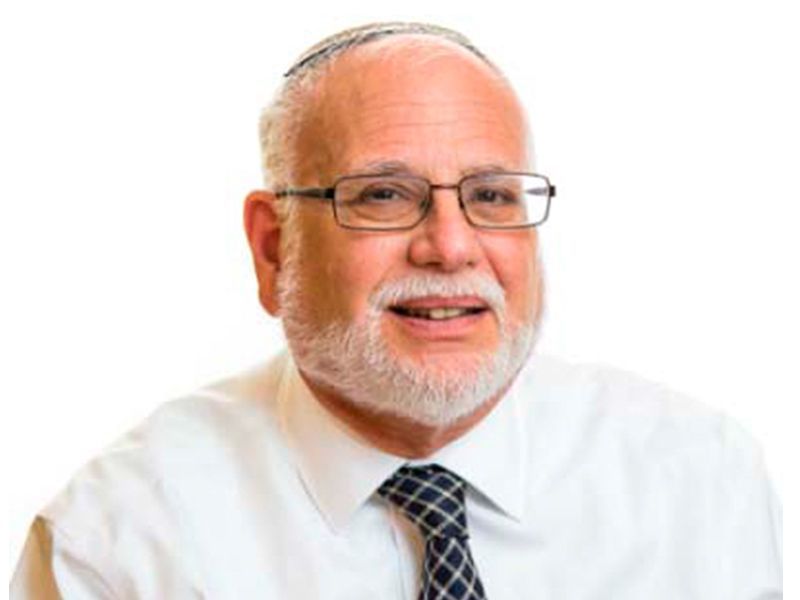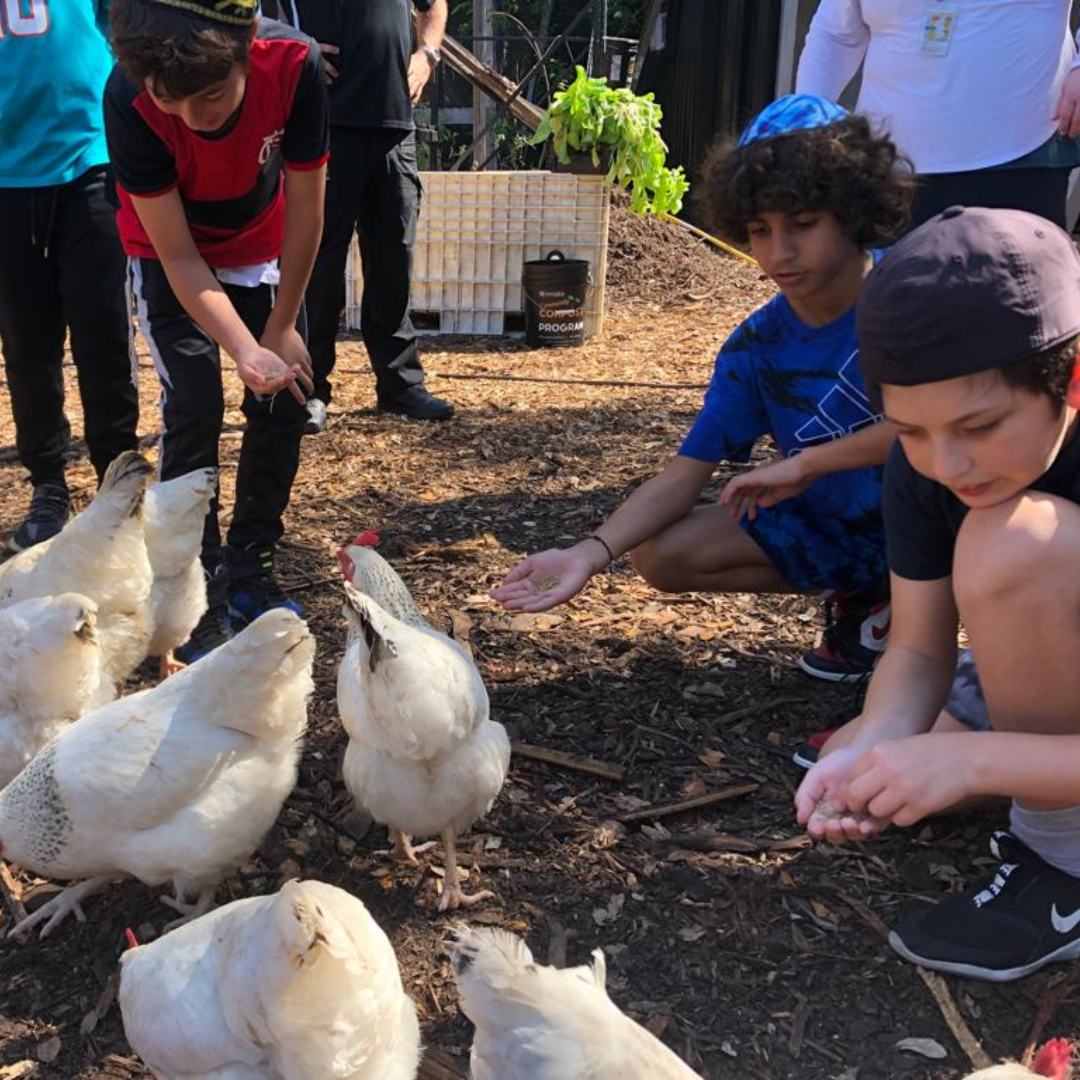
03 May, 2024
Dear Hebrew Academy Community: Monday, the 28th of Nisan, is Yom HaShoah, the Holocaust Memorial Day which was designated by the Knesset to coincide not only with the anniversary of the Warsaw Ghetto Uprising but also to remember that it was during the period of Sefira when, as the Knesset resolution articulated it, “the great-grandparents of the Nazis, the Crusaders,” massacred Jewish communities in Germany at the end of the Eleventh Century. I share with you a heart–rending but also inspiring incident which took place on the first night of Pesach 1944 in Bergen-Belsen. The entire community of Rotterdam had just been transferred to Bergen-Belsen with their revered leader, Rabbi Aharon Davids. I need not tell you how awful conditions were in the camp: Daily back-breaking work and barely subsistence nourishment. How, the Jews of Rotterdam asked their rabbi, can we observe Pesach this year? On that Seder night Rabbi Davids sat at the head of a table in the men’s barracks and conducted the Seder from memory for his starving brethren. The highlight of our Seder, of course, is when we have completed the Mitzvah of Sippur Yetzi’at Mitzrayim, lift up the Matzot, and recite the Bracha of: אשר קדשנו במצוותיו וצונו על אכילת מצה What is one to do when not only is there absolutely no possibility of having Matzah for Pesach but when one’s very survival depends on eating bread, the only food the Nazis supplied, on Pesach? Just at that point of his Seder Rabbi Davids lifted his voice and proclaimed: אבינו שבשמים Our Father in heaven— הנה גלוי וידוע לפניך שרצוננו לעשות רצונך ולחוג את חג הפסח באכילת מצה ובשמירת איסור חמץ It is clear to You that we desire to do Your will and to celebrate Pesach by eating Matzah and refraining from Chametz. אך על זאת דאבה לבנו -- but we are sick at heart— שהשיעבוד מעכב אותנו ואנחנו נמצאים בסכנת נפשות-- because our oppression prevents us [from fulfilling these Mitzvot] and we are in mortal danger. הננו מוכנים ומזומנים לקיים מצוותך וחי בהם ולא שימות בהם וליזהר מאזהרה השמר לך ושמור נפשך מאוד -- We are ready and willing to fulfill your commandment that "we live by the Mitzvot and not die by them” and to heed the warning {Devarim 4:9}: "Protect yourself and keep your soul alive.” ועל כן תפילתנו לך שתחיינו ותקיימנו ותגאלנו במהרה -- We, therefore pray to You, that You keep us alive, sustain us and redeem us speedily— לשמור חוקיך ולעשות רצונך לעבדך בלבב שלם-- so that we may observe Your statutes, do Your will, and serve you wholeheartedly—Amen. Rabbi Davids then reached for a piece of bread, took a bite, and urged his fellow Jews to do the same. (Rabbi Davids and his son died shortly before the liberation of the camp. His wife and daughters survived and made Aliyah. A copy of Rabbi David’s awe-inspiring Tefilah was given to her by eyewitnesses.) There is much to say about this but anything I could say would simply detract from the power of this extraordinary document. Shabbat Shalom, Dr. Kalman Stein Head of School

12 Jan, 2024
Dear Hebrew Academy Community: Something rather strange happens very near the beginning of this week’s Parasha. As we all remember from last week’s Torah reading, Moshe’s initial approach to Pharaoh had resulted in the imposition of even harsher conditions on the Israelite slaves. Parashat Shemot ended with Moshe complaining “ ה', למה הרעתה לעם הזה?--Hashem, why have You made things worse for this nation? Why did You send me?”—and with Hashem’s promise that Pharaoh would indeed free the Israelites. This week’s Parasha begins with Hashem’s well-known four-part promise to Bnai Yisrael (which we commemorate with the four cups of wine at the Seder): והוצאתי אתכם, והצלתי אתכם, וגאלתי אתכם, ולקחתי אתכם , I Will take you out of Egypt; I will save you from slavery, I will redeem you with an outstretched arm, I will take you as My nation. Hashem concludes by once again commanding Moshe and Aharon to come before Pharaoh and to continue their mission to save Am Yisrael from Egyptian bondage. We expect that the next sentence should tell us about the next confrontation with Pharaoh. Instead, right in the midst of this powerful narrative, the Torah pauses for thirteen Pesukim of genealogy. The account begins with Reuven and Shimon, Levi’s older brothers, continues with the lineage of the tribe of Levi down to Moshe and Aharon’s parents, Amram and Yocheved, gives us many more details about other branches of Shevet Levi, and concludes with the re-introduction of Moshe and Aharon. What’s this all about? Any creative writing teacher would have red penciled this entire passage. The drama is building, the story is racing to another dramatic crescendo, and the author decides to take a time out to list the names of our heroes’ relatives and ancestors? Rav Avigdor HaLevi Nebenzahl notes that the Torah is teaching us that even Moshe and Aharon, with all of their personal greatness, had roots from which they were nurtured. Moshe Rabbeinu and Aharon HaKohen had a father and mother and there was a very close relationship between the greatness they achieved and their family roots. Moshe was not just Moshe; he was Moshe ben Amram, just as Amram was Amram ben Kehat, and Kehat was ben Levi. Therefore, at this juncture, as Moshe and Aharon embark upon their mission, the Torah pauses to tell us who they were, from whence they came. Rootedness, a sense of belonging and permanence, is an important part of Jewish identity and continuity. Our kids are not just the descendants of a family which arrived in North America from Eastern Europe or North Africa or Latin America. We need to do a better job of fostering within our children the kind of pride in what we as a people have contributed to the world which will make them want to remain firmly committed to extending that Mesorah beyond themselves to their children and grandchildren. When we pray in a certain Nusach, when Mom lights Shabbat candles in a particular way, when we sing certain Pizmonim or Zemirot, when we try to create the kind of Seder we remember from our own childhood, we should take the time to talk to our children about how these meaningful practices and traditions were transmitted from parent to child back through the mists of Jewish history. If Benjamin Disraeli, the British Prime Minister who wasn’t really a Jew—he was baptized at the age of twelve—could remark to an anti-Semitic Member of Parliament, “while the ancestors of the right honorable gentleman were brutal savages in an unknown island, mine were priests in the temple of Solomon,” we, proud Jews who are loyal to our Mesorah must help our children to see themselves as the next links in a 3,500-year-old chain. Shabbat Shalom, Dr. Kalman Stein Head of School
© 2024
RASG Hebrew Academy



